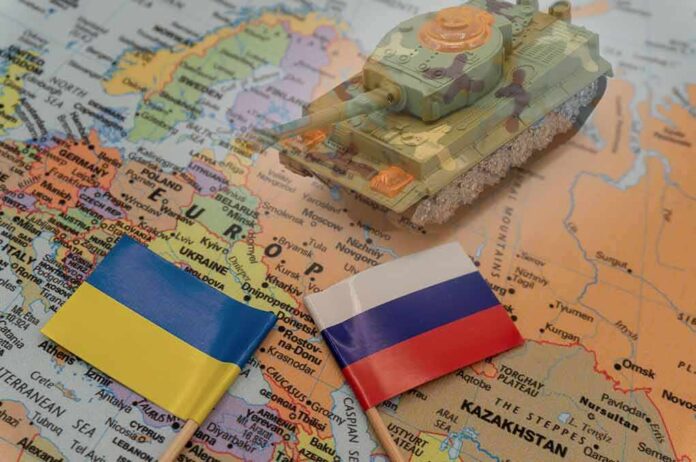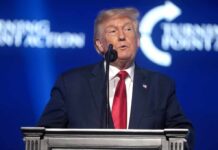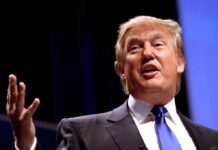Secretary of State Marco Rubio has officially endorsed the Vatican as a neutral venue for Russia-Ukraine cease-fire talks, potentially breaking the diplomatic stalemate that has prolonged the devastating conflict in Eastern Europe.
Key Takeaways
- U.S. Secretary of State Marco Rubio has proposed the Vatican as a neutral venue for Russia-Ukraine peace negotiations, citing its diplomatic neutrality and history of facilitating sensitive talks.
- Pope Leo XIV, the first American pope, has vowed to “make every effort” to help end the war and has authorized Cardinal Matteo Zuppi to serve as the Vatican’s point man on Ukraine peace initiatives.
- President Trump plans to directly engage with both Russian President Vladimir Putin and Ukrainian President Volodymyr Zelenskyy to expedite cease-fire negotiations.
- Ukraine has agreed to an unconditional cease-fire, while Russia has not yet committed, with Putin refusing to attend recent direct talks with Ukraine.
- The Vatican would not serve as a peace broker but rather as a trusted, neutral setting where “both sides would be comfortable going.”
Vatican’s Neutral Ground Offers Hope for Peace
During high-level meetings in Rome, Secretary of State Marco Rubio emphasized the Vatican’s unique position as a diplomatic neutral ground that could facilitate much-needed cease-fire talks between Russia and Ukraine. After discussions with Cardinal Matteo Zuppi, the Vatican’s special envoy for the Ukraine conflict, Rubio clarified the potential role the Holy See might play in future negotiations. The Vatican’s diplomatic corps has already assisted with prisoner exchanges and humanitarian efforts, establishing credibility with both sides in the conflict.
“I wouldn’t call it broker, but it’s certainly — I think it’s a place that both sides would be comfortable going,” said Marco Rubio, U.S. Secretary of State.
Pope Leo XIV’s Peace Initiative Takes Center Stage
Pope Leo XIV, who made history as the first American pope, has placed the Ukraine conflict at the top of his diplomatic agenda. Since his election, he has repeatedly called for an end to the “bloodbath” in Ukraine and urged direct negotiations between the warring parties. Cardinal Pietro Parolin, the Vatican’s Secretary of State, has reaffirmed the Holy See’s willingness to host direct talks, building on the Vatican’s successful diplomatic history, including facilitating U.S.-Cuba talks in 2014 and playing a crucial role during the 1962 Cuban missile crisis.
“The Holy See is willing to help enemies meet, so they may look each other in the eye and so people may be given back the dignity they deserve: the dignity of peace. With heart in hand, I say to the leaders of nations: let us meet; let us dialogue; let us negotiate!” said Pope Leo XIV.
The Vatican’s experience hosting diplomatic initiatives includes bringing together rival leaders of South Sudan in 2019, demonstrating its capacity to create conditions for dialogue between hostile parties. Cardinal Zuppi has been instrumental in recent humanitarian efforts, including assisting with the return of Ukrainian children taken to Russia and facilitating prisoner swaps that have provided some relief to families affected by the conflict.
Trump Administration Faces Diplomatic Challenges
President Trump has made ending the Ukraine conflict a priority for his administration, but faces significant obstacles in bringing Russia to the negotiating table. Despite Ukraine’s willingness to accept an unconditional cease-fire, Russian President Vladimir Putin has thus far declined to participate in direct talks. Rubio’s endorsement of the Vatican as a potential venue represents a strategic attempt to create conditions where both parties might feel secure enough to engage in meaningful dialogue.
“We have always said, repeated to the two sides, that we are available to you, with all the discretion needed,” said Cardinal Pietro Parolin, Vatican Secretary of State.
The situation in Ukraine remains dire, with recent Russian strikes in the Sumy region killing nine civilians and prompting President Zelenskyy to call for tougher sanctions against Moscow. While European leaders, including those from Germany and Italy, have ruled out deploying troops to Ukraine, they continue to press for an unconditional ceasefire from Russia. Zelenskyy’s meetings with leaders in Rome seek additional support for humanitarian aid and rebuilding efforts in the war-torn country.











